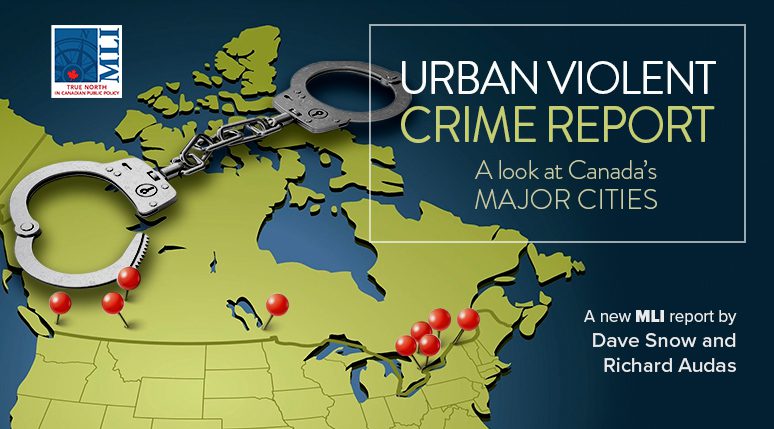OTTAWA, ON (September 17, 2024):
In a newly released report, MLI experts expose a troubling trend in violent crime across Canada’s largest cities. Canada is facing a dire threat to public safety with rising rates of sexual assault, robbery, and other violent offences.
The report, by Macdonald-Laurier Institute Senior Fellows and criminal justice experts Dave Snow and Rick Audas, is based on a decade’s worth of police-reported data from nine major urban centres: Calgary, Edmonton, Montreal, Ottawa, Peel, Toronto, Vancouver, Winnipeg, and York.
The crux of the matter is that we are seeing alarming spikes in violent crime, particularly sexual assault.
Key findings:
1. Sexual assault is up in every city we studied: Sexual assault rates are rising in all nine cities. They are up for every city in the short term, and for nearly every city over the medium- and long-term. Only Ottawa saw a decline in its long-term rolling sexual assault rate (2016–2023).
2. Winnipeg and Edmonton are in serious trouble: Winnipeg and Edmonton consistently occupy the worst spots for homicide, aggravated assault, and robbery rates. Winnipeg has nearly three times as many robberies as the next highest city and Edmonton has four times as many aggravated assaults as the next highest city (excluding Winnipeg).
3. Crime is rising, even in historically low-crime cities: While Winnipeg and Edmonton consistently rank as the highest for violent crime, other traditionally safer regions, such as York and Peel in Ontario, are also seeing significant increases in violent crime. No region is immune to the rising violence.
As a key recommendation the authors of the report call on all stakeholders – police services, the Major Cities Chiefs Association, Statistics Canada, and other municipalities – to do a better, more transparent job coordinating the data they share on violent crime.
Ensuring timely, harmonized reporting on violent crime is crucial to restoring public safety and maintaining trust in Canada’s justice system. “This should not be happening in Canada where we have a single Criminal Code whose provisions are uniform across the country,” warn Snow and Audas.
Vancouver is a particularly sobering example of why data cohesion is crucial in addressing this issue. Because Vancouver’s data for sexual assault accords with a narrower definition of rape, Vancouver is excluded from the rankings for sexual assault thus giving us an inaccurate depiction of reality.
To learn more, read the full paper here:
Dave Snow is an associate professor in the Department of Political Science at the University of Guelph and a senior fellow at the Macdonald-Laurier Institute. He teaches in the undergraduate Criminal Justice and Public Policy program and was the graduate coordinator of the Criminology and Criminal Justice Policy program from 2018–2020.
Richard Audas is a professor of Health Statistics and Economics in the Faculty of Medicine at Memorial University of Newfoundland and Labrador and is a senior research fellow at the Macdonald-Laurier Institute.
For further information, media are invited to contact:
Dagny Pawlak-Loerchner
Senior Communications Officer
613-482-8327 x113
dagny.pawlak-loerchner@macdonaldlaurier.ca







